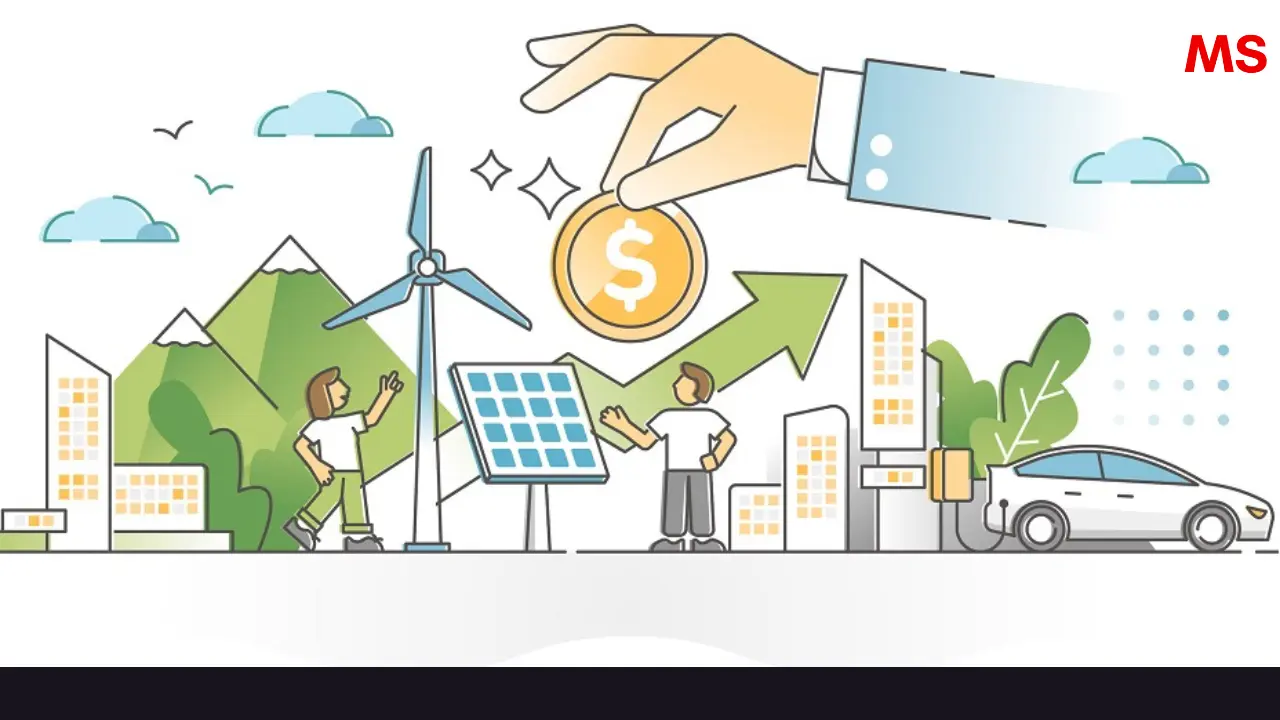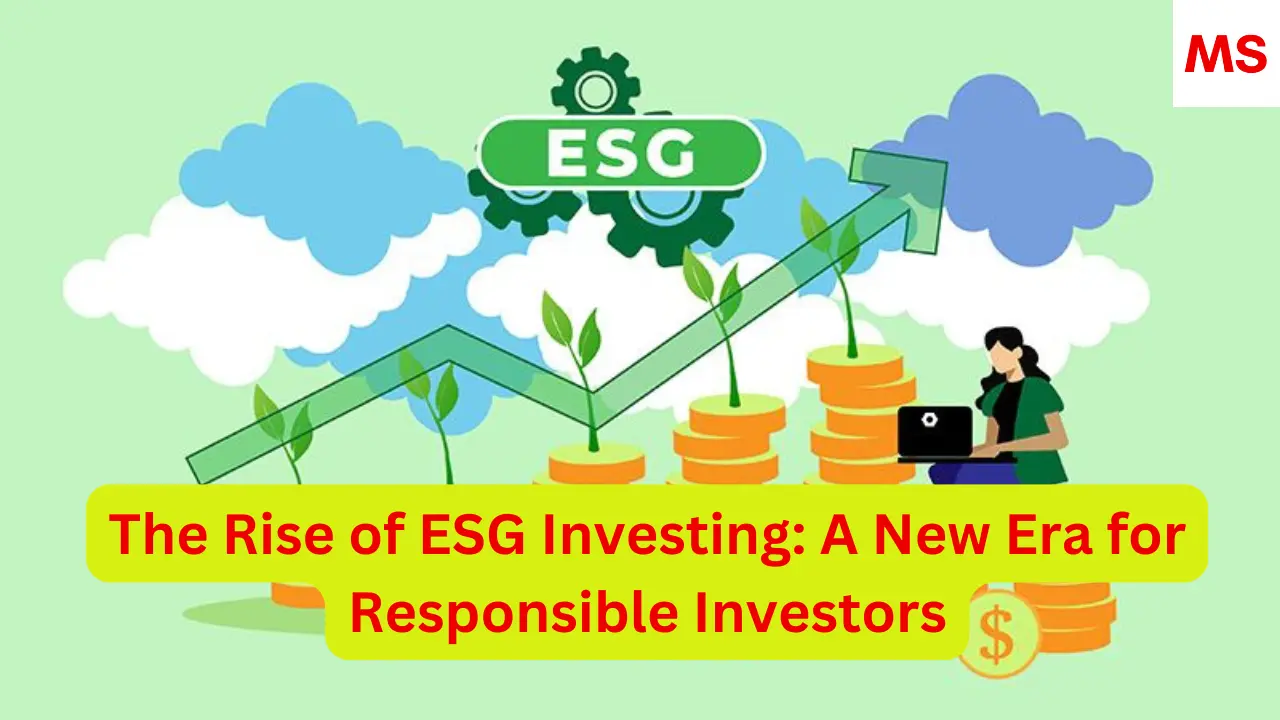ESG investing is gaining popularity these days. ESG is short for Environmental, Social, and Governance. Investors tend to look at these 3main factors whenever they evaluate an investment company. ESG investing is focused on more than just financial returns. This includes assessing an organization’s effect on the planet, and people, and how it is established.

What is ESG Investing?
At its simplest level, ESG investing is the practice of choosing investments based on criteria related to environmental sustainability (E), social responsibility (S), and corporate governance issues (G).
- Ecological: This involves the nature of a company This includes carbon emissions, waste management, and on-site renewable energy.
- Social: This catches how a company manages its relationships with employees, customers, and the localities in which it operates. It also examines diversity, human rights, and labor practices.
- Regulation: This encompasses how a business is conducted. It covers topics from executive pay to corruption to board diversity.
Importance Of ESG Investing
Awareness of global issues is on the rise among investors. An increased awareness of climate change, social inequality and corporate scandals have changed what they consider before putting in their money. This is where ESG investing comes in.
By investing in companies that score well on ESG criteria, investors help encourage the responsible behavior of businesses. At the same time, they can also avoid companies that may be risky to own based on poor ESG practices.
The Rise of ESG Investing
ESG investing has gained a lot of popularity in the financial world lately, with assets under management at ESG funds growing rapidly. It was a niche in the former days. Now, it is mainstream. The ESG dimensions have also been taken up by an increasing number of investors when making investment decisions.
This uprise has been brought about by many factors.
- More Awareness: Now society and individuals have more exposure to environmental and social causes. The media, activists, and everyone, in general, are demanding transformation.
- Governments and Regulators: Introducing new regulations. Eligibility requirements typically include the disclosure of a company’s ESG practices. This provides investors with the information they need to be informed.
- Efficiency: Analysis has identified that companies with sound ESG practices can achieve stronger long-term performance efficiencies. This leads to them being better able to manage risk and capitalize on the associated opportunities. This means a higher long-term return on investment.
How ESG Investing Works
There are various methods of implementing ESG investing. Common Options is here:-
- Negative screening – whereby investors rule out companies that do not satisfy some ESG standards. This may involve a company that is involved with fossil fuels, tobacco, or weapons for instance.
- If you choose this approach, we refer to it as positive screening Positive Screening: This is where companies are chosen that do well in ESG criteria. An investor may, for example, sit this week with a choice of companies that have solid environmental policies or good labor practices.
- ESG Integration – Incorporate ESG factors into investment analysis. When investing, whether it involves an ROFO or anything else, investors are looking at both financial and ESG data points equally.
- Impact Investing: Where investors put their money into companies or projects that do some good for the world. Their investment in renewable projects or social enterprises, for example.
Examples of ESG Investing
There are many companies and funds at the forefront of ESG investing.
- Tesla – a company ESG investors go gaga for, of course! The company is well-known for its electric cars and dedication to green energy.
- Unilever– sustainability Unilever gets good press for its sustainability practices. It has bold waste reduction, water usage and social responsibility policies.
- ESG Funds – Several investment firms have ESG funds available. Socially responsible mutual funds purchase a variety of companies that satisfy ESG standards. Examples are the Vanguard ESG U.S. Stock ETF and iShares MSCI KLD 400 Social ETF.
Challenges in ESG Investing
CHALLENGES ESG INVESTING FACES Despite its growth, there are several challenges that ESG investing faces.
- Lack of Standardization: The ESG criteria have not been standardized across the board. Each rating agency and investor could have a different opinion (or concern) on the subject. That also makes it tough to compare companies.
- Data Quality (There might not always be good data on ESG) Not all companies say enough Some could overstate their ESG practices.
- Greenwashing: Companies that try to portray themselves as more sustainable than they are. A practice called Greenwashing. That can cause mislead investors and harm the trust within.
The Future of ESG Investing
The Road Ahead for ESG Investments
- Further regulations: expect governments to bring further regulation into the picture. This will require companies to make ESG practices better
- Improved Data: More recently, the quality of ESG data will be augmented by technology and new standards. Overall, the goal here is to help investors do better.
- Rising Demand: Younger and more investors are seeking ESG. This will fuel further ESG investing.
Conclusion
By Ivan Yatskiv – The ESG investment is not hype. Today, it demonstrates an evolution in the way people interpret investments. It begins to see investors figuring out that financial returns are no longer enough. The same goes for the impact of such activities on the environment, society, and governance
ESG factors can help investors choose better. After all, they can prop up businesses working for good and shun those that are not. And better is not only about money but also with regards to the planet and society
FAQs
Q. What does ESG stand for?
A.ESG or Environmental, Social and Governance
Q . What is ESG investing and why does it matter?
A.ESG investing is one way of addressing global problems such as climate change and social inequality. This empowers investors to have investments with companies that generate positive impacts.
Q. Where Does ESG Investing Stand Today?
A.ESG investing from niche to mainstream As ESG becomes more promoted by the system, it will also be taken into consideration as a decision-maker in investments given to capitalize on better performance or even potential regulation restrictions.
Q. How to invest using ESG strategies?
A. The terminology in turn represents the most common styles of responsible investing, namely negative screening, positive screening ESG integration, and impact investing.
Q. What are some well-known companies that are heavyweight when it comes to ESG investment?
A. Popular selections like Tesla and Unilever would be better fits because of their strong ESG credentials.
Q. The Challenges for ESG Investing
A. The hurdles of lack of uniform standardization, data reliability issues, and greenwashing.
Q. What does the future hold for ESG investing?
A. More regulation + better data / increasing investor demand = a bright future
Q. How can investors get started on ESG investing?
A. To begin your ESG investment journey, research some companies with top-of-the-range ESG practices or investigate an array of ESG funds. They can also talk to ESG investing experts through a financial advisor.
Conclusion
The funders of three thousand foundations might not be enough to change the world, but it is sufficient dowry so that every woman can sleep with a little peace. Town-by-town green activism will expose corporate lies and ESG investing may in time make some impact on how we value financial wealth. It demonstrates investors do not only care about bottom-line profits. They are ambitious to do well. This can likely result in a brighter future for all. With more women getting involved, there will only be greater changes to come!
I’m Ankz Kumar, the writer of Meraseason News. Here, I write content for tech, business, finance, automobiles, and education. My goal is to provide valuable, easy-to-understand content to readers so they stay informed and make smarter decisions.


1 thought on “The Rise of ESG Investing: A New Era for Responsible Investors”